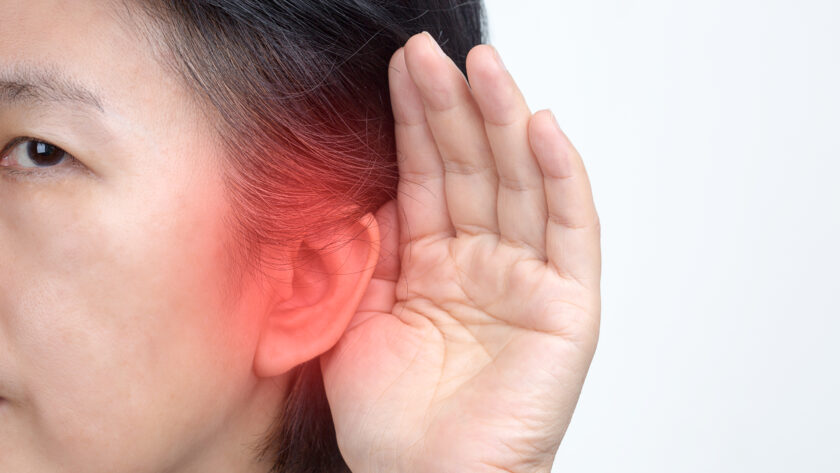Hearing loss can occur in one or both ears. Hearing loss can range from mild to profound and usually affects the elderly above the age of 60. While this is something that is usually caused by the onset of old age, certain illnesses can also cause hearing loss. Hearing loss can be a symptom of these illnesses or a direct effect. Read on to know six rare illnesses that can cause hearing loss.
Otosclerosis
This is a condition that is caused due to abnormal bone modeling in the middle ear. Replacing old tissue with new is a natural and lifelong process of the body. In otosclerosis, this remodeling is abnormal and causes disruption in the ability of the sound to travel from the middle ear to the inner ear. Currently, there seems to be no permanent medical treatment for this condition; however, using hearing aids can help amplify the sound in mild cases.
Ménière’s disease
This is a condition where the person experiences vertigo and hearing loss due to a disorder caused in the inner ear. The specific cause for this disorder remains unknown; however, this disease usually starts between young and middle-aged adulthood. It is a chronic condition that leads to hearing loss. However, with some treatments and care, the symptoms can be managed with the help and guidance of a medical professional.
Autoimmune inner ear disease
Known to be a rare condition, this happens when the body’s immune system accidentally starts attacking the inner ear. According to statistics, less than one percent of Americans suffer from hearing loss caused by autoimmune inner ear disease. This condition causes dizziness, ringing in the ears, and eventual hearing loss. These symptoms remain so common that it becomes difficult to diagnose AIED at the onset. Many mistake this to be a regular infection when it could be more serious.
Acoustic neuroma
It is a noncancerous growth that develops on the vestibulocochlear nerve. This condition makes it difficult to transmit sound and creates an imbalance in sending information from the inner ear to the brain. This affected nerve connects the inner ear to the brain, and the development of growth disrupts the flow of information leading to hearing loss.
Presbycusis
This is a common hearing loss that is caused by age. Called a sensorineural hearing loss, this affects those above the age of 60. Speech starts to sound unclear and muffled, leading to listening to TV or the radio on loud or asking people to speak louder.
Auditory neuropathy spec⦁ trum disorder
This is a disorder where the inner ear is unable to transmit the sound properly to the hearing nerve. This inner ear is called the cochlea, and it receives sounds well, but this sound is not processed normally by the hearing nerve.
Otosclerosis
This is a condition that is caused due to abnormal bone modeling in the middle ear. Replacing old tissue with new is a natural and lifelong process of the body. In otosclerosis, this remodeling is abnormal and causes disruption in the ability of the sound to travel from the middle ear to the inner ear. Currently, there seems to be no permanent medical treatment for this condition; however, using hearing aids can help amplify the sound in mild cases.
Ménière’s disease
This is a condition where the person experiences vertigo and hearing loss due to a disorder caused in the inner ear. The specific cause for this disorder remains unknown; however, this disease usually starts between young and middle-aged adulthood. It is a chronic condition that leads to hearing loss. However, with some treatments and care, the symptoms can be managed with the help and guidance of a medical professional.
Autoimmune inner ear disease
Known to be a rare condition, this happens when the body’s immune system accidentally starts attacking the inner ear. According to statistics, less than one percent of Americans suffer from hearing loss caused by autoimmune inner ear disease. This condition causes dizziness, ringing in the ears, and eventual hearing loss. These symptoms remain so common that it becomes difficult to diagnose AIED at the onset. Many mistake this to be a regular infection when it could be more serious.
Acoustic neuroma
It is a noncancerous growth that develops on the vestibulocochlear nerve. This condition makes it difficult to transmit sound and creates an imbalance in sending information from the inner ear to the brain. This affected nerve connects the inner ear to the brain, and the development of growth disrupts the flow of information leading to hearing loss.
Presbycusis
This is a common hearing loss that is caused by age. Called a sensorineural hearing loss, this affects those above the age of 60. Speech starts to sound unclear and muffled, leading to listening to TV or the radio on loud or asking people to speak louder.
Auditory neuropathy spec⦁ trum disorder
This is a disorder where the inner ear is unable to transmit the sound properly to the hearing nerve. This inner ear is called the cochlea, and it receives sounds well, but this sound is not processed normally by the hearing nerve.




